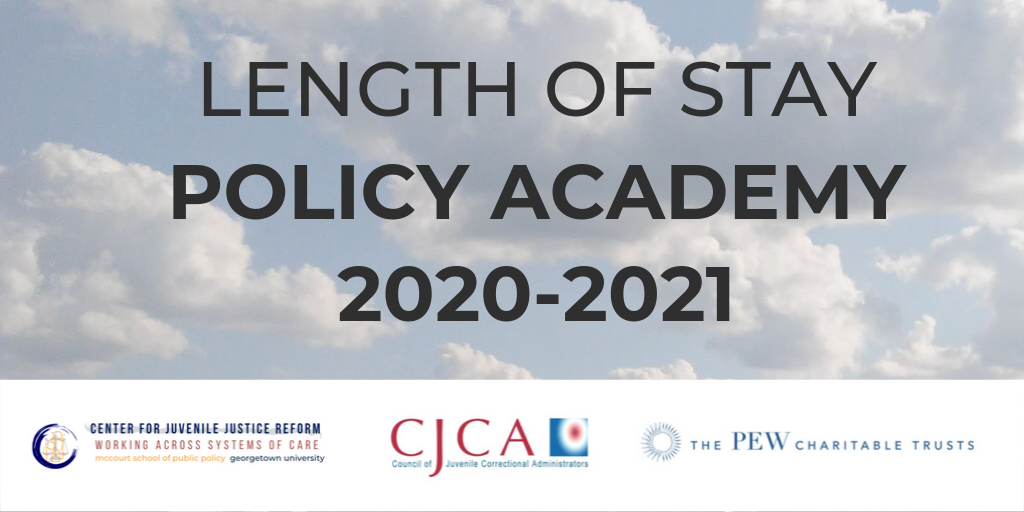Length of Stay Policy Academy

In recent years, there has been a growing recognition that youth involved in the juvenile justice system thrive best when they are in their own homes and communities, supported by those who love them and who have an interest in seeing them grow and develop into responsible adults. While some system-involved youth may benefit from time-limited, out-of-home care to maximize public safety and other positive outcomes, system staff and partners must always be mindful of the impact that residential placement can have on youth’s development and their ability to maintain positive connections to their families and communities.
Systems interested in producing the best outcomes for youth and communities need to pay particular attention to how youth experience residential treatment—including both the length of time they are away from their homes and social supports, as well as the nature and quality of the services and approaches in the programs themselves. During this time, adults caring for young people have the opportunity to help youth disrupt undesired behaviors, establish new pathways of thinking and seeing the world, and develop the types of skills and pro-social support networks that ultimately will help them succeed. Significant consequences can occur if there is a failure to make the most of this time away.
In February 2019, a robust discussion among participants in a Council of Juvenile Justice Administrators (CJJA) message group developed about how different states were studying or modifying length of stay, with many planning to revisit their approaches to these decisions. CJCA reached out to the Center for Juvenile Justice Reform (CJJR) and The Pew Charitable Trusts (Pew), and the three organizations consequently asked juvenile justice administrators if there would be interest in supporting system stakeholders exploring length of stay with a series of multi-state convenings, data analysis coaching and other technical assistance. There was a great deal of interest, and to that end, we have developed the Length of Stay Policy Academy. The goal of the Policy Academy is to guide and support teams from state and local jurisdictions to examine and address policies, practices, and other factors contributing to length of stay in post-adjudication placements and to develop strategic plans to improve outcomes for young people in those placements. The Policy Academy will examine key research findings, case studies, and lessons learned from systems across the U.S., and will challenge participants to commit to strengthening their system practices and policies to ensure that every youth receives what is needed to position them for long-term success.
For this program, length of stay refers to the entire time a youth spends out of his or her home in a custodial status after adjudication, residing in detention pending placement, or in a youth correctional facility, residential treatment facility, residential aftercare program, or group home prior to returning home or being released from custody.
The Policy Academy builds on Pew’s commitment to helping states use data-driven and research-informed approaches to solve challenges in juvenile and criminal justice. The program also rests on the decades of experience of CJJR and the CJJA in delivering high-quality training and technical assistance to juvenile justice systems across the country on research-based and data-driven policies and practices to improve outcomes for youth. Through support from the Pew Charitable Trusts, this opportunity is offered free of charge for up to eight participants per jurisdiction selected.
A total of five multi-disciplinary teams were selected for participation in the Policy Academy from the following States:
- Idaho
- Maryland
- New York
- Oklahoma
- Texas
